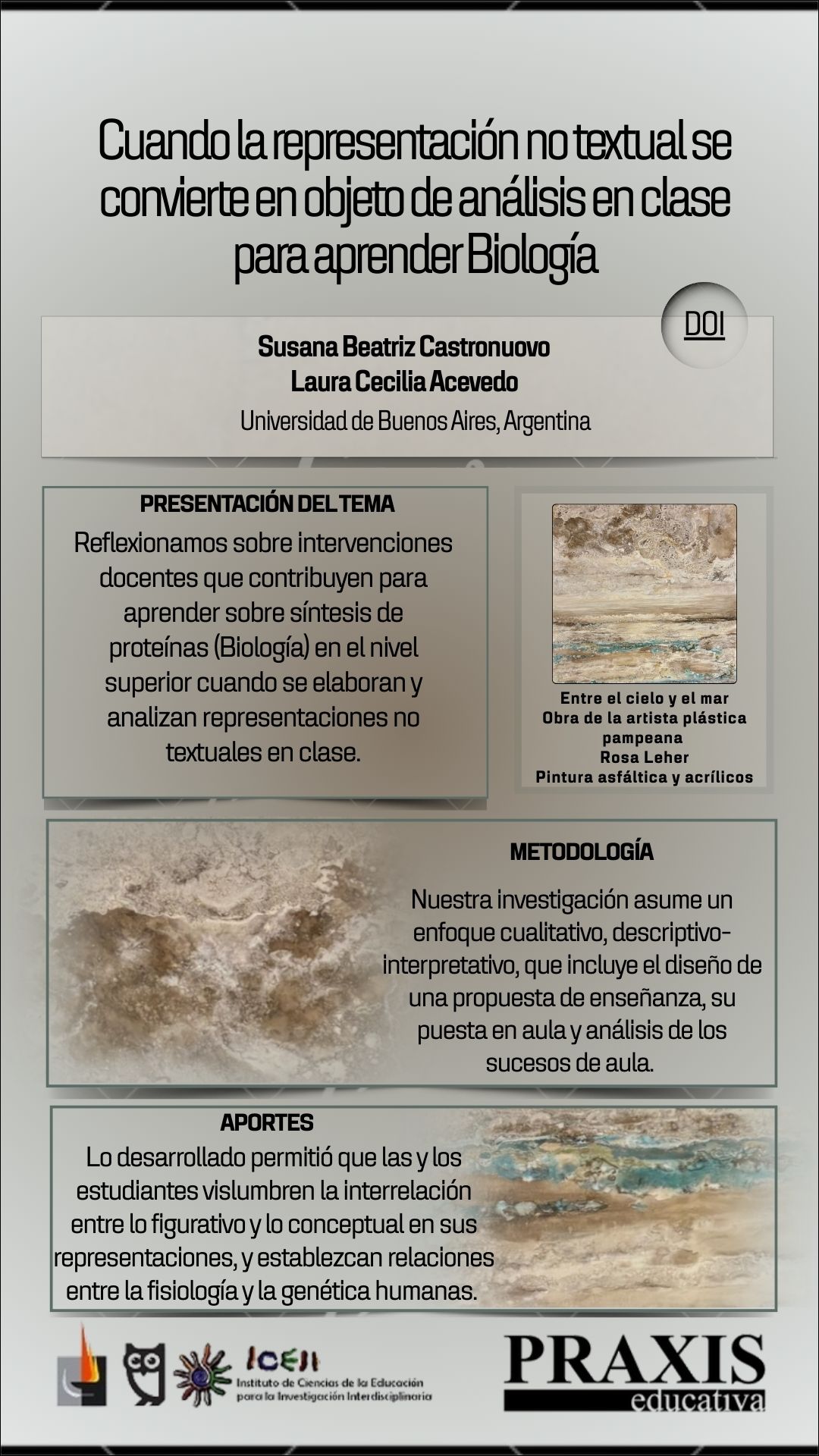When non-textual representation becomes an object of analysis in the classroom for learning Biology
DOI:
https://doi.org/10.19137/praxiseducativa-2025-290316Keywords:
Graphical representations, Orality, External representation, Science education, BiologyAbstract
We reflect on the power of recovering the representational work that students of a Biology teacher training course carry out in class in order to learn about protein synthesis. With the aim of analysing the relationships between two external systems of representation –pictorial and oral– that lead to advances in knowledge when representations are taken as the object of analysis in class, we distinguish teaching interventions aimed at getting students to: identify how an anatomical arrangement collaborates with interpreting the functional; review marks included and link them to the functional; rethink ideas discussed that are difficult to assimilate; take up concepts already studied that generate doubts in a new context; and show what they did not manage to capture on paper. We maintain that these interventions address relationships between the figurative and the conceptual that contribute to the learning of specific content and the epistemic use of representational tools in the area.
Keywords: Graphical representations, orality, external representation, science education, biology.
Downloads

Published
Issue
Section
License
Copyright (c) 2025 Susana Beatriz Castronuovo, Cecilia Acevedo

This work is licensed under a Creative Commons Attribution-NonCommercial-ShareAlike 4.0 International License.
Copyright Notice
Editorial Committee Educational Praxis Magazine:
I hereby declare that I am the author of the article titled (article name), that it is original and my own and that it was not previously published in any other format or medium. I declare to know that the magazine will not charge me any type of fee under any circumstances, nor will I receive any type of monetary compensation If it were accepted for publication in Educational Praxis, I authorize the aforementioned magazine to publish it digitally and to advertise it on its social networks.
If the work is published, I adhere to the Creative Commons license called "Attribution - Non-Commercial Share Alike CC BY-NC-SA", through which it is allowed to copy, reproduce, distribute, publicly communicate the work and generate derivative works, as long as when the original author is cited and acknowledged. This license has been used since September 2018. In 2016 CC BY NC ND 4.0 was adhered to; and in the years 2017 and 2018 (January-August) CC BY NC 4.0.
This CC BY-NC-SA Share Alike license does not, however, permit commercial use of the work. As an author, the journal may establish additional agreements for the non-exclusive distribution of the version of the work published in the journal, it allows me to self-archive the published articles, in their post-print version, in institutional, thematic repositories, personal web pages or any other relevant use. with the recognition of having been first published in this journal.
Educational Praxis adheres to DORA (Declaration on Research Assessment) signed in San Francisco, California, on December 16, 2012, and to the Declaration of Mexico (Joint Declaration LATINDEX - REDALYC - CLACSO - IBICT).














_(1)2.png)


3.png)











_(2).png)






2.jpg)









